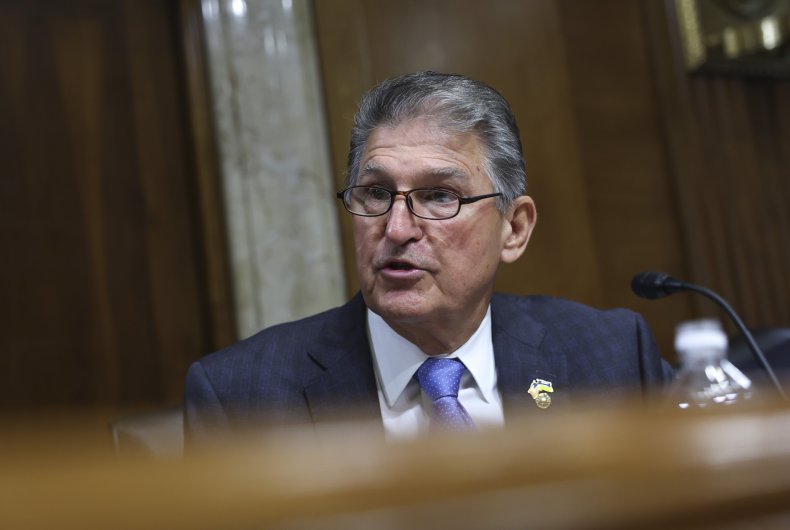Soaring food prices could have major impact on Canadians' health
Cost of food rising at highest rate in 41 years, putting millions of Canadians at risk
Rising food prices are putting a growing number of Canadians under financial strain.
That could create major effects on our health as more Canadians may opt for unhealthy food or skip meals altogether due to rising costs.
Research shows food insecurity is tied to far worse health outcomes, and that could lead to added pressure on our already overburdened health-care system.
Food prices have soared to their highest rates in almost half a century, leaving many Canadians feeling more financial pressure at the checkout line and eating less healthy food to save money — something that could lead to serious impacts on our health.
Canada is now in the grips of a growing food insecurity crisis, with many low-income and fixed-income households faced with the difficult decision to either pay their bills or put food on the table at a time when even the price of staple items has skyrocketed.
Prices on food purchased from grocery store shelves shot up by 11.4 per cent in September — the fastest annual increase in 41 years.
The price of fresh fruit went up by 12.9 per cent, fresh vegetables by 11.8 per cent, baked goods by 14.8 per cent and meat by 7.6 per cent — putting the healthy diet recommended in Canada's Food Guide further out of reach for many Canadians.
"I'm a Type 2 diabetic and I also have hypertension as well, and so I'm supposed to eat a very healthy high fibre diet — well, that's not happening," said Tracy Ross, who lives on a fixed income on a disability pension in Spruce Grove, Alta., and struggles to afford groceries.
"The repercussions of all of this down the line, I don't even want to think about it. People's health issues are going to get worse, people are going to be dying. Our hospitals are already overworked and understaffed."
WATCH | 'I can't afford anything healthy': Winnipeg advocate on social assistance
Ross said she has also been finding it harder to pay her monthly utility bills due to the rapid rise in food prices, whereas previously she was able to keep up month-to-month.
"So what, are you going to go cold or are you going to go hungry?" she told CBC News. "I need a new winter jacket — it ain't gonna happen this year."
Even the price of essentials have reached new heights, with a three-litre bottle of vegetable oil rising more than 40 per cent between August 2021 and August 2022 in Canada, topping the list of most expensive food items this year.
The number of Canadians using food banks across the country also reached record highs this year, with nearly 1.5 million visits in March, up 15 per cent over the same time last year and 35 per cent more than in March 2019, prior to the pandemic.
More than 30 per cent of Canadians said they were eating less healthy food due to rising costs, while almost 20 per cent said they skipped meals to save money in a new national survey from the Canadian Hub for Applied and Social Research at the University of Saskatchewan.
The cost of feeding a family of four in Ottawa with healthy food rose more than 20 per cent during the pandemic to more than $1,000 a month, up from just over $900 in 2019, according to a new survey from Ottawa Public Health.
And there appears to be no relief in sight at the checkout line.
Dairy prices are expected to rise again in the new year, even as Canada's top three grocers all posted higher profits this year compared with their average performances over the last five years.
'Accepting far worse health outcomes for millions'
"We're talking about millions of people being unable to access food in one of the richest countries," said Dr. Andrew Boozary, executive director of health and social policy for Toronto's University Health Network.
"There is no way that we can shirk what we are talking about here, this is really about accepting far worse health outcomes for millions of Canadians."
A growing body of research has found that food insecurity is tied to much poorer health outcomes for adults and children, something that could lead to more pressure on the already overburdened health-care system down the road.
"In adults, we're talking about Type 2 diabetes, heart disease, high blood pressure, poor bone health — all the reasons why a healthy diet is important," said Valerie Tarasuk, a professor of nutritional sciences at the University of Toronto's Temerty Faculty of Medicine.
"People who are food insecure are way more likely to turn up in an emergency department, they're more likely to be hospitalized for a variety of conditions, and once hospitalized, they're more likely to stay longer, and they're more likely to be readmitted."
WATCH | Food insecurity can shorten lifespan:
A new study shows that food insecurity, the lack of access to nutritious foods, can shorten someone’s lifespan by nine years.
Canadians living in food insecure homes are also more vulnerable to infectious diseases, poor oral health, injuries and chronic conditions like depression, anxiety, heart disease, hypertension, arthritis and chronic pain, according to U of T's PROOF research program.
Statistics Canada reported Friday that more than one in three Canadians over 15 live in households that are finding it difficult to cover necessary expenses, including transportation, housing, food, clothing and other costs — up from just one in five in October 2020.
"Living in poverty puts you at higher risk of developing almost every chronic health condition, acute health condition, higher risks of even being in accidents, experiencing trauma," said Dr. Gary Bloch, a family physician at St. Michael's Hospital in Toronto.
"It also puts you at higher risk of worse outcomes from all of those conditions."
A 2018 Ontario study published in the journal PLOS One found that adults who live in food insecure homes had more than twice the risk of developing Type 2 diabetes compared to those who had ready access to food, an issue Tarasuk said may be worsened by the rising cost of groceries.
"They have higher rates of chronic conditions than food secure Canadians and that includes both mental health and physical health conditions," Tarasuk said. "So now, you turn up the heat on them with these increased prices — they're less able to manage."
The latest data from Statistic Canada's Canadian Income Survey found 5.8 million Canadians, including 1.4 million children, lived in food insecure households in 2021.
"We're seeing it play out in the health-care system with far worse health outcomes for people who are having to try to make these impossible choices between putting food on their table, paying rent or renewing their medication," said Boozary.
"These are the impossible choices now that are more impossible than ever for families and people across the country."
No relief in sight
With no signs of food inflation slowing down anytime soon, experts are calling for more to be done to support Canadians who may be finding themselves struggling to afford groceries — or looking for ways to stretch their budget and avoid eating unhealthy food.
Abby Langer, a registered dietitian and nutrition expert in Toronto, also suggested people consider things like grocery store price matching, using coupons and opting for less expensive food options that can still create nutritious meals including beans, lentils, tofu and eggs.
"You don't have to buy a ton of animal protein or think that you have to buy fish or whatnot to get that protein. Like you could have an omelet for dinner and it's an inexpensive protein-rich meal," she said, adding that canned and frozen foods can also be stored much longer.
"I want people to know you don't need to buy organic food at all. It's such a marketing ploy, you're not going to live longer if you eat organic food and it's so much more expensive. So please don't feel pressure to buy that kind of food — buy what you can afford."
Food banks and other charitable food assistance are also touted as solutions to the problem of food insecurity, but Boozary said they merely act as a Band-Aid to a systemic problem.
"Food banks are not the solution to food insecurity, the same way that shelters are not the policy solution to homelessness," he said, adding policy-makers need to ensure that social assistance programs rise on par with inflation and that living wages are provided.
"Everyone out there who's having to try to navigate these impossible choices knows that the root cause here is poverty and financial constraints. Not necessarily just food and food choices."
Tarasuk said there is no evidence to suggest charitable food assistance groups like Food Banks Canada can solve the problem of food insecurity, noting policy interventions such as universal basic incomes are other ways to get at the root of the problem.
"I hope that in this time, everybody is conscious of these rising prices," she said. "I think people that haven't really thought much about it now are wondering how people are affording these costs."
WATCH | No relief for rising food costs despite overall inflation slowing:
For Ross in Alberta, the challenge of rising food costs isn't going away anytime soon.
"I have two kids and they have spouses and I have a grandchild — how am I even going to afford to get some stuff for Christmas? It's just awful," she said.
"And how am I even going to cook Christmas dinner?"












